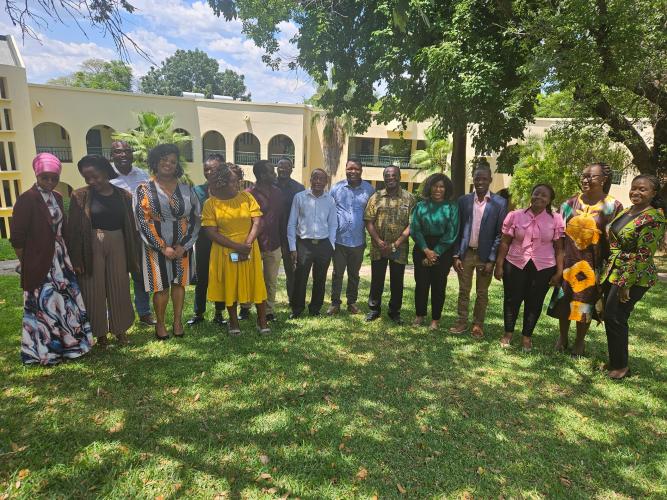1.0 Introduction
The Capacity Building Initiative for Transparency (CBIT) under the Paris Agreement is aimed at strengthening the institutional and technical capacity of developing countries to conform to the Enhanced Transparency Framework (ETF) requirements of the Paris Agreement. A number of countries are currently implementing the first phase of the GEF-funded CBIT projects through UNEP and other entities. The projects focus on various outputs, all aimed at strengthening the capacity to report to the UNFCCC and the Paris Agreement and inform individual policies as well as Nationally Determined Contributions and are at various stages of implementation.
Peer-to-peer learning among CBIT project members in Africa can be a highly effective approach to enhancing skills, sharing knowledge, and fostering collaboration. Transparency and reporting are crucial elements to enhance understanding, tracking progress, and promoting accountability in the global efforts to combat climate change.
The CBIT projects in Africa are at different implementation levels, have met different challenges during implementation, and provide success stories worthy of sharing. The CBIT project coordinators have never met in one space to share what is happening in their countries regarding the development of Measurement, Reporting, and Verification (MRV) systems under the ETF of the Paris Agreement. Experience sharing or peer-to-peer learning is a strategy that could help the projects achieve more through collaboration that entails sharing ideas, diverse perspectives, and skills, fostering innovation and creativity, and identifying opportunities for further strengthening country capacities in transparency.
With recent discussions among CBIT members from (Sierra Leone, Zimbabwe, South Africa, and Malawi) all being funded by the GEF with UNEP acting as the GEF Implementing Agency, the members have unanimously agreed to convene for peer learning, experience sharing, and collaboration to discuss our common interests, inherent challenges and explore more opportunities to assist our countries within and beyond the first and current phase of CBIT. Against this background, a 3-day Peer learning, exchange, and collaboration workshop is being proposed and organised for the 5 Anglophone African countries implementing the CBIT projects through UNEP.
2.0 Objectives of the workshop
The workshop participants shared best practices, technical insights, challenges, and constraints in CBIT project implementation and developed mitigation measures across African CBIT projects. The specific objectives were:
- Shared best practices and technical insights on the functionality, of GHGI and how the inventories can be operationalised in institutions of Africa CBIT projects.
- Shared challenges and constraints in CBIT project implementation and development mitigation measures.
- Identify opportunities to strengthen further in-country capacities to implement the provisions of ETF under the Paris Agreement
- Developed and strengthened collaboration synergies among African countries in ETF and shared expertise across countries.
- Strengthened collaboration between CBIT and other initiatives such as BTRs and National Communications
3.0 Outputs
- A list of identified opportunities to strengthen further in-country, cross-learning and mutual learning capacity-building approaches to implement the provisions of ETF under the Paris Agreement and collaboration between CBIT and other initiatives such as BTRs and National Communications among the countries.
- Each country identified a priority list for achieving improved implementation of national CBIT projects and enhancing capacities in ETF among African countries.
